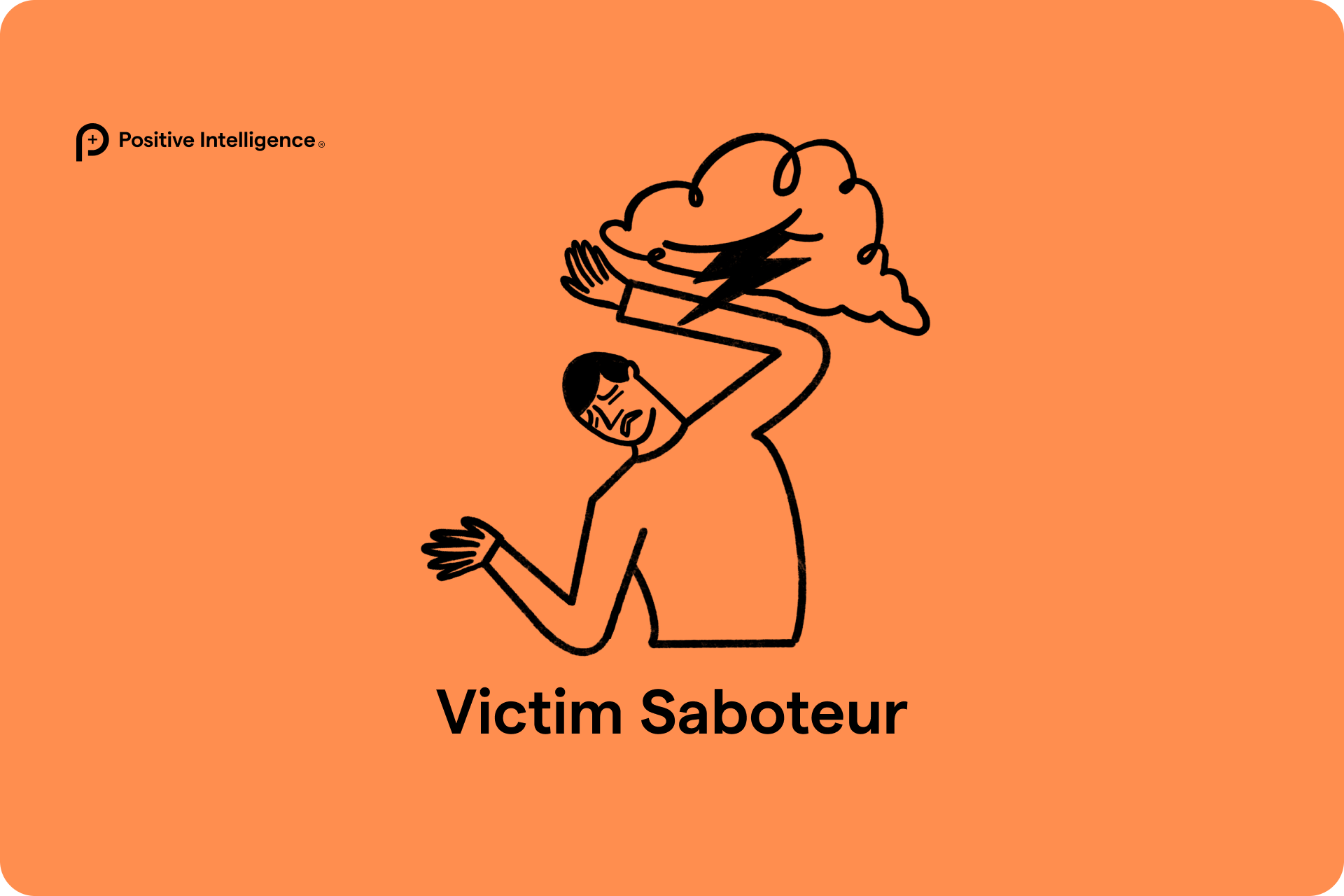
Individual
A self-facilitated program to boost your mental fitness for personal and professional growth
This website will offer limited functionality in this browser. We only support the recent versions of major browsers like Chrome, Firefox, Safari, and Edge.

Select the experience that fits your needs

A self-facilitated program to boost your mental fitness for personal and professional growth

A self-facilitated mental fitness program with exclusive pricing for 2 to 25 individuals

Explore coach-led mental fitness programs with workshops tailored to your organization
Growth Mindset

Saboteurs are the internal voices that undermine your confidence, creativity, and sense of control. Among these voices is the Victim Saboteur, which triggers feelings of helplessness, self-pity, and blame. Here’s what you need to know about the Victim Saboteur and some effective strategies for minimizing its negative influence.
Saboteurs are deeply ingrained patterns of thinking and behavior that limit your potential and hinder your ability to perform at your best. They are internal critics that operate based on fear, self-doubt, and negative self-talk. Saboteur patterns can take various forms, such as the Avoider, the Hyper-Vigilant, the Stickler, and more. Each Saboteur has a unique way of sabotaging your wellbeing and success.
With a tendency toward martyrdom, the Victim Saboteur intensely focuses on internal feelings, especially painful ones. This mindset can provoke emotional reactions or temperamental behavior as a way to seek attention and affection.
The Victim Saboteur tends to react to criticism or feeling misunderstood by withdrawing, pouting, or sulking. In challenging situations, the Victim tends to give up. This repressed frustration and anger can manifest as depression, apathy, and persistent fatigue.
Here’s what to look out for as the Victim tries to impose its lies and limiting beliefs on you.
The Victim Saboteur often stems from childhood experiences of not feeling fully seen or accepted, leading to the belief that something is fundamentally wrong with you. As a coping mechanism, the Victim’s behavior emerges as a way to seek attention and affection from others who might otherwise not notice. However, the emotional highs and lows create only a false sense of aliveness, masking the deeper need for genuine connection and validation.
The Victim Saboteur drains vital energy with its excessive focus on internal processing and brooding, which often has the unintended consequence of alienating others. Instead of drawing people in, the Victim Saboteur pushes them away, leaving others feeling frustrated, helpless, or guilty for not being able to provide more than a temporary fix to the ongoing pain.
1. The first thing to remember is that if you’re in negative emotion for more than a second, you’re in Saboteur mode. You must label your thoughts and emotions at that moment as Saboteur and let them go. To be able to do that, you need to have studied your Saboteurs (including the Victim) and discredited their lies and limiting beliefs. Take the Saboteur Assessment to get started.
2. The next step is to perform a PQ Rep, which is a 10-second hyper-focus on one of your senses. PQ Reps are powerful ways to command your mind to quiet the region where your Saboteurs live and activate the region where your Sage (positive self) lives. Whenever you catch the Victim or your other Saboteurs, do PQ Reps to pause and choose a more positive response. Visit the PQ Gym to try some guided PQ Reps.
In addition to catching the Victim and performing PQ Reps, try these practices to minimize this Saboteur’s negative influence on your life:
1. Cultivate Self-Awareness: Identify and acknowledge when the Victim Saboteur mindset arises. Notice patterns of self-pity, blame, and feelings of powerlessness, and recognize them as Saboteur tendencies.
2. Adpot Empowerment Language: Use empowering language that reflects agency, resilience, and proactive action. Instead of saying, “I can’t,” reframe to “I choose,” “I will,” or “I am capable of.”
3. Seek Support and Resources: Surround yourself with supportive individuals who encourage growth, empowerment, and accountability. Consider seeking mental health professionals, coaches, or mentors to support your journey.
4. Practice Gratitude: Cultivate a practice of gratitude to shift your focus from what’s lacking or challenging to what you appreciate and are grateful for in your life. Gratitude promotes a positive outlook and increases resilience.
While the Victim Saboteur fosters feelings of powerlessness, self-pity, and blame, you can reduce its influence by building mental fitness and resilience. By taking ownership of your experiences and enhancing your self-awareness, you can navigate challenges with strength, optimism, and a sense of agency. True empowerment comes from within as you develop the mental skills to embrace challenges and take proactive action.
Explore how the PQ Program for mental fitness can help you and your team intercept your Saboteurs to improve performance, team dynamics, and wellbeing.

